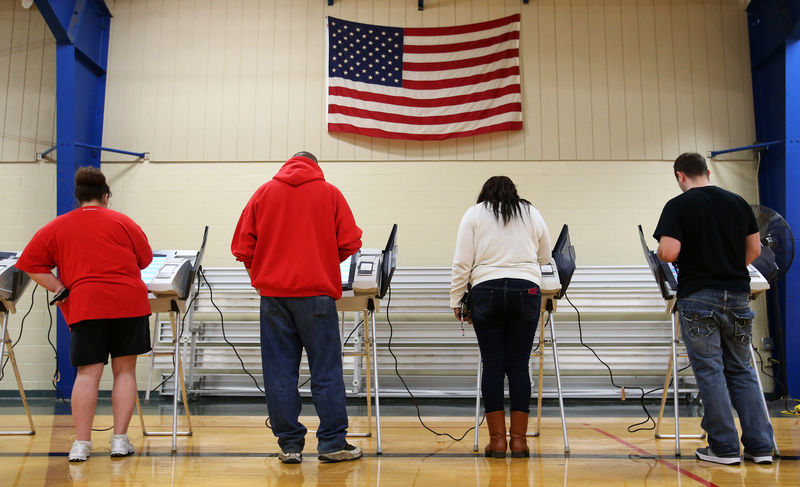By Richard Cowan
WASHINGTON (Reuters) - U.S. states would get $600 million in federal grants to secure voting machines from cyber attacks under legislation passed by the House of Representatives on Thursday, with the money to be spent quickly so that upgraded equipment is in place by the Nov. 3, 2020 national elections.
The Democratic-controlled House approved the legislation in a mostly partisan vote of 225-184. It attempts to help states switch to paper ballots from electronic machines that are more vulnerable to attack.
The states run voting stations in elections for U.S. president, Congress and state and local elected offices.
Special Counsel Robert Mueller submitted a report in April to the Justice Department stating that the Russian government interfered in the 2016 presidential election "in sweeping and systematic fashion."
While there has not been firm evidence that Russia's 2016 meddling altered any voting machine results, there are worries that 2020 could bring foreign hacking of voter registration rolls or even the ballots that are cast.
The House bill, which would provide a total of $1.1 billion in election security funds over a decade, faces opposition in the Senate. Majority Leader Mitch McConnell, a Republican, has said that $380 million spent last year to secure voting machines was adequate.
McConnell also has noted that since the 2016 elections, the Department of Homeland Security has increased information-sharing with states.
The "Securing America's Federal Elections Act" (SAFE Act) would require audits to determine whether meddling occurred in elections and would provide additional federal funding to help states maintain voting systems.
Democratic Representative Zoe Lofgren, who chairs the House Administration Committee that is shepherding the legislation, said during House debate that state election officials have been clamoring for additional funding from Washington.
"Every American, no matter what their choice in politics, should know that their vote will be counted as cast," Lofgren said.
With the new equipment, paper ballots would be counted by hand or would be read by an optical scanner or other counting device.
The bill also would require reporting of cybersecurity "incidents" against election systems and prohibit state practices that could inadvertently help hackers.
The bill tracks provisions of legislation by Democratic Senator Ron Wyden, an active proponent of new election security steps.

"Based on what I know now, 2020 in terms of election security interference is going to make 2016 look like very small potatoes," Wyden, a member of the Senate Intelligence Committee, said in a hallway interview. "And it is not just the Russians. It is a host of hostile powers."